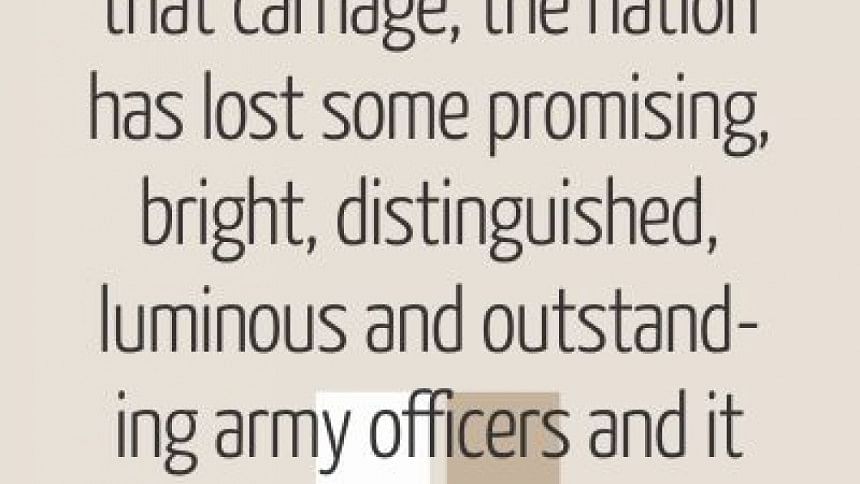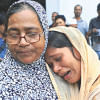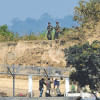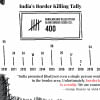Intelligence failure still puzzling

The High Court yesterday asked Border Guard Bangladesh (BGB) to form a probe body to investigate why the intelligence unit of then BDR failed to detect the impending 2009 mutiny.
A three-member bench of the High Court while delivering the verdict on death references and appeals in the sensational BDR carnage case advised the authorities to make the probe report public as soon as possible.
The recommendation came around nine years after the gruesome carnage in the headquarters of the then Bangladesh Rifles (BDR) on February 25-26. A total of 74 people, including 57 high- and mid-ranking army officers, were killed.
Days before the mutiny and the carnage, the rebel BDR jawans had distributed leaflets inside and outside the Pilkhana headquarters in which they raised various demands.
As part of the conspiracy, they held several meetings before the mutiny and decided how they would loot the armouries.
But the Rifle Security Unit (RSU) of BDR members failed to alert the authorities.
It could not be known if there was any probe into the failure of the RSU, and if anyone got punishment.
Investigation into the intelligence failure is one of the seven recommendations made by the HC bench yesterday.
A lower court judge in his verdict in the same case four years ago had found many weaknesses in the intelligence wing of the border force.
He had observed that the RSU was undoubtedly weak. It could not predict how deep the conspiracy was and the intensity of it and that was why the intelligence wing ought to be strengthened, the judge said.
Following recommendations by different committees, the BGB restructured and strengthened its intelligence unit. It also implemented many other reforms based on the BGB Act, 2010.
The BGB now has a three-layer intelligence -- Border Security Bureau at HQ level, Region Intelligence Bureau at regional HQ level and another tyre at the battalion level.
The national enquiry formed with former secretary Anis-uz-Zaman as its chairman had also recommended reconstitution of BDR, redistribution of responsibility and duty of all intelligence agencies, and formation of a permanent Central Intelligence Coordination Committee (CICC) at the highest level.
It also suggested formation of counter intelligence forces for all intelligence agencies, including the RSU.
Talking to a number of police and intelligence agency officials it was learnt that no committee like the CICC had been formed.
Nur Mohammad, who was the inspector general of police during the mutiny in 2009, told The Daily Star yesterday that as far as he knew, there was no committee like the CICC.
The former police boss, however, said security coordination meeting are regularly held where forces share information.

 For all latest news, follow The Daily Star's Google News channel.
For all latest news, follow The Daily Star's Google News channel. 








Comments